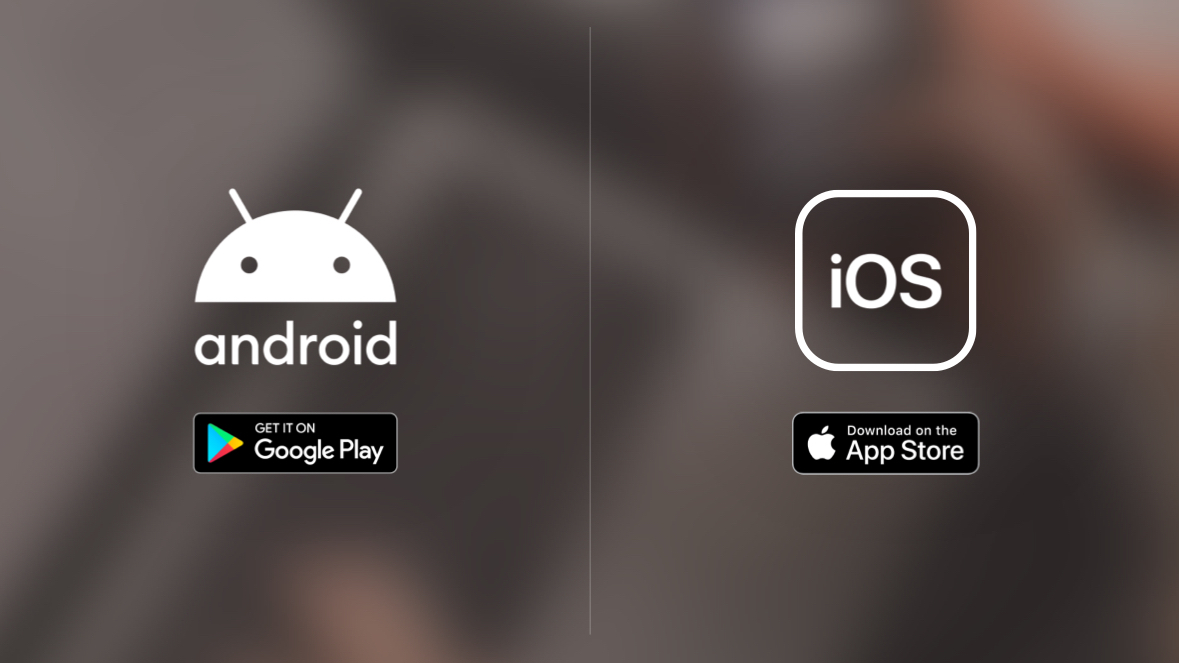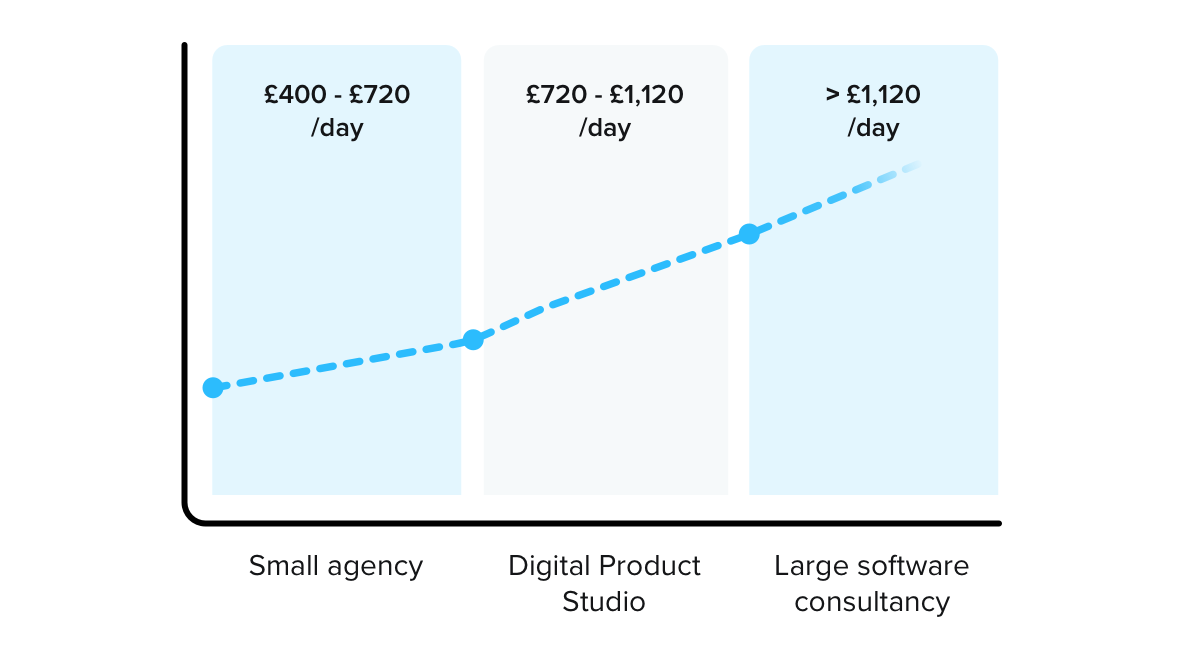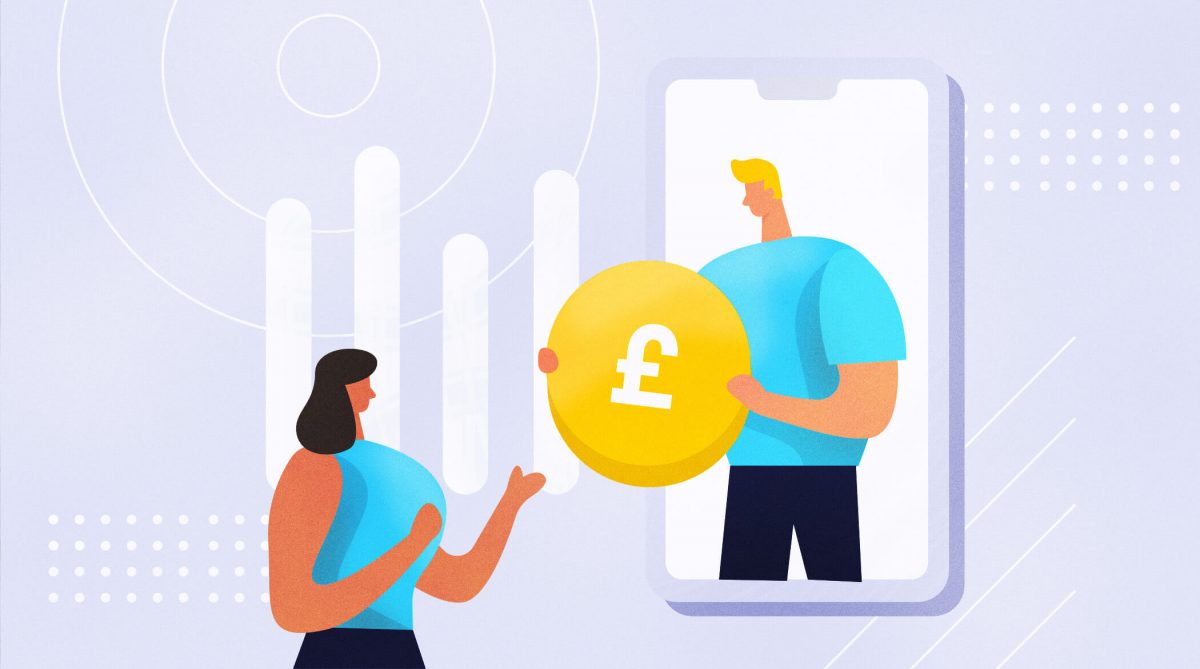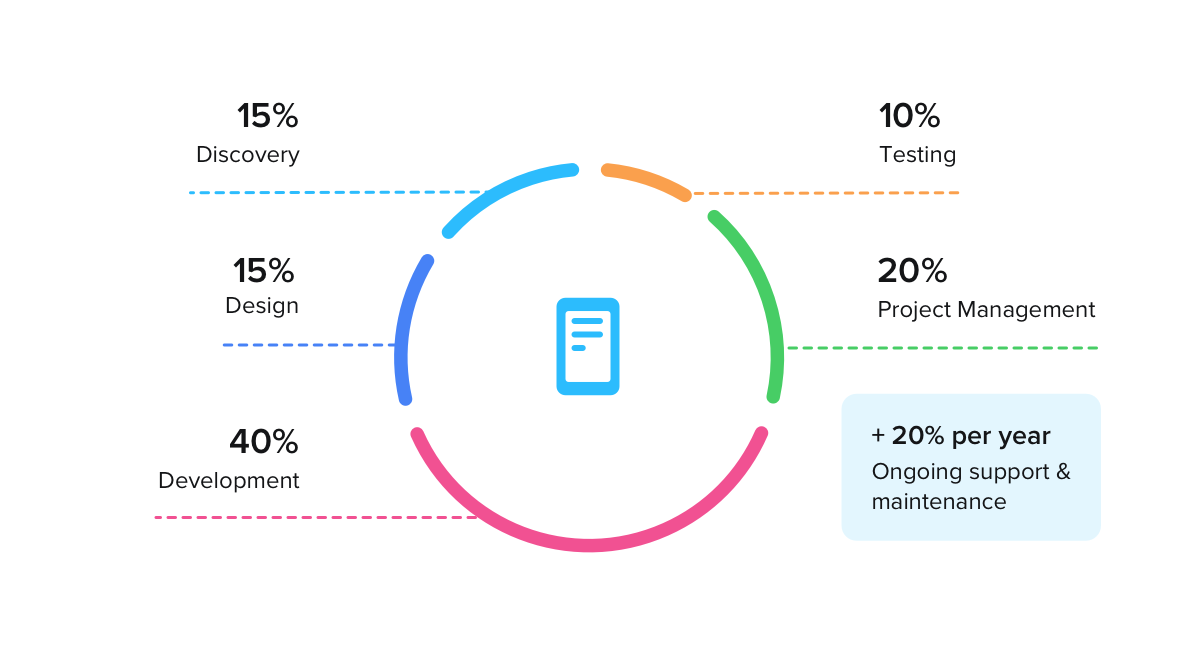Apps are everywhere. We use them every day, whether that’s to communicate with friends and family, order food, do our banking, or one of the many other tasks necessary to keep up with daily life. This is evident in that every smartphone user has on average 80+ apps installed, and at the end of 2020 there were over 1.85 million apps available on the iOS app store and 2.56 million available for Android in Google play.
So, how much does an app cost to create?
The truth is that the cost to create an app varies hugely, with typical prices for an initial build being anywhere from £20,000 to £200,000 (they can cost more, but most organisations won’t normally be working at this scale).
We’re here to help you understand what you’ll need to think about to inform your budgets. We’ll cover what it takes to create an app and the key factors that impact cost.
- Functionality and complexity
- iOS, Android or both?
- Native vs Hybrid?
- Who should build your app?
- What am I paying for?
- How and when will I pay for my app?
What affects the cost of an app?
There are many factors that affect the development cost of an app, but the most important ones to think about are:
- Functionality and complexity
- Platforms: Android (Google Play) vs iOS (App Store) and Hybrid vs Native
- The size and experience of your development company
- Ongoing support, maintenance & continuous improvement
Functionality and complexity
A general rule of thumb is that the cost of an app depends on the time it takes to create it (we’ve also written a handy article about that too – How long does an app take to create?) The more complex an app, the more it will cost. This is why the functionality you need is often the most important factor when thinking about budgeting and estimating.
To help you define your functionality, think about the following:
- Will the app require a login and unique user profiles?
- Will it need to access/save data to a server or the cloud?
- Do you need a dashboard or a back office tool for your team to manage admin tasks?
- Does the app need to work offline (without wifi or 4G)?
- Do you need to take orders or payments?
- Will it require integration with a 3rd party system? e.g. CRM or database
- Does it need to have a CMS (content management system) so you can make regular content updates
- Will it be translated into multiple languages?
Some of these features e.g. login, persistent data storage, may require the app to sit on its own server. This will have an impact on the cost, as you’ll probably need a mobile app and a web app. If you think this might be the case, speak to your app development company and they can give you an estimate for ongoing costs for this new infrastructure.
It is worth getting your development company involved early to help you define your functionality requirements based on the problem you are trying to solve. They’ll have lots of experience in highlighting the must haves, and will also suggest cost effective ways to get to the same end result.
Sign up to get helpful articles, case studies and the latest news straight to your inbox.
How much does it cost to create an app for iOS, Android, or both?

When it comes to building your app there are two places you can make it available to download, the App Store (iOS) and Google Play (Android). You’ll need to decide whether you need both or just one. Think about your target audience, if you are launching to the general public then it’s likely you’ll want to appear on both as their market share is pretty much equal in the UK. But it is possible to do this in stages to help manage budget and timings. If your app is for internal use only, you may be able to just pick one and save money. Knowing this in advance will help you decide how you build your app using a Native or Hybrid approach.
You should also bear in mind that Apple and Google both charge for their services so you’ll need to include this within the initial build costs and any ongoing income forecasting:
- Apple charge $99/year for access to their Developer Programme
- Google charge a one off $25 for access to their Developer Programme
- And both companies take a 30% cut of any revenue generated by the app
Building your app – Native or Hybrid?
Developing your app natively for both platforms means doubling the cost as you’ll need to write the app in two languages. However if you know you want to launch in both Android and iOS you can develop your app using a Hybrid approach, cross-platform technology enables you to target both with a single code base. A hybrid approach isn’t always the best fit for processor heavy 3d apps or high performance games but it’s a good fit for 99% of the briefs we receive and is the approach we favour. Many of the large organisations such as the BBC, NHS and NASA use this approach too.
If you want to know more, checkout our deep dive article on Hybrid vs Native or take a look at a selection of the hybrid apps we’ve built.
Who should build your app?
There is a big difference between working with a small agency, a Digital Product Studio like Rareloop and a larger software consultancy.
Small agencies tend to charge a lower day rate for development as they have lower overheads. However, they may not have the experience, knowledge, or expertise that a larger team can provide.
Typical development companies charge on a hourly or day rate:
- Small agency: £400 – £800/day
- Digital Product Studio: £720 – £1,120/day
- Large software consultancy: > £1,120/day

It takes many different skill sets to build a successful app including design, development, testing, devops and project management so ensuring you have a team with a varied skill set is a must. Chat to your app development agency early on, as ideas that may seem simple to begin with will often evolve and become more complex as the functionality is understood. A good agency will help you define the requirements, guide you on the right approach and highlight the process you’ll need to go through to get it live.
In terms of which size agency is best for you? There are good and bad companies at all sizes, so do your research. Look at a company’s previous work and chat to some of their clients to get a good idea on fit and quality. It’s a really important decision as it can be very costly to move an app to a new company or worse still have to start again from scratch!
App development costs, what am I paying for?
When developing an app you’re paying for your development company’s time, their expertise and their experience. Sometimes it’s tricky to understand how that time is spent, but a typical app will require a process that includes definition and discovery, design, development, testing, project management and ongoing support and maintenance. In our experience your budget is normally split across the following phases.
- Discovery – 15%
- Design – 15%
- Development – 40%
- Testing – 10%
- Project management – 20%
- Ongoing support and maintenance – From 20% of the total project budget
Discovery
At the start of any app project it’s typical for there to be a defined concept, but for design and development specifics to still be unknown. The devil is always in the detail and the discovery phase is the best way for you and your app agency to finalise them. The best discovery phases are truly collaborative, we use a co-design approach to gather, review and prioritise requirements. This leads us to exploring the right solutions and development approaches before finalising the scope with you. In the discovery phase we’ll create prototypes, which give you a better feel for how the app will work without the fully designed look and feel. It also helps to highlight any changes you might want before development, which minimises scope creep and increased budget spend. This is a fundamental part of the process to better understand the true costs associated with creating your app and how long it will take to develop.
Design
Your app needs to work well and look great, this is the role of design. Our user interface designers use your branding, colours and imagery to bring the app to life. They use best-practice and their experience to encourage the right user behaviour on the app. Encouraging people to complete tasks, read content or a defined call to action.
Development
This is the technical part of the project, where code is written to make your app a reality. It will be written in either Native or Hybrid ready for release on Google Play and/or Apple’s App store.
This tends to be the most lengthy part of the project and the biggest bulk of the budget. It’s also the most exciting, as you get to see it come to life.
Testing
Good testing is crucial to the success of any digital software project and apps are no different. Automated testing helps catch issues during development and helps prevent regressions, while manual testing by real humans ensures that the app works as expected end-to-end. Both techniques are a must in any project to ensure a smooth launch.
Project management
This is the people and the process that glue everything together. They ensure an app is delivered on time, on budget and to the specification set-out at the beginning. They provide clear (non techy) and open communication between you and your development team and keep track of project progress, changes and risks. They are the people you’ll pick up the phone to when you have a question and ensure everyone works well together.
Ongoing app costs
Whilst ongoing costs won’t necessarily affect the initial app development budget they should be considered at an early stage to ensure that your app stays up-to-date. Technology and users are changing all the time, so your app will need to keep up. There can also be some major implications if you don’t look after it properly including data security, device compatibility, and many more. Understanding this before you start means that you’ll have a better idea on your apps impact on future costs and required budget.
There are four types of ongoing activity you should consider:
- Maintenance and updates – This is proactively keeping your app up to date with the latest OS versions; ensuring security patches are applied at the right time; adapting to changes in user behaviour or organisational requirements
- Continuous improvement – a structured approach for regular refinement, new features and enhancements to your app
- Support – reactive support when you or your app users have any issues
- Server and infrastructure – Not all apps require this, but if yours does they’ll be a monthly/annual cost for this too.
It’s important to note that any changes to your app will require testing and resubmitting to the app stores. The more complex the app and/or change you’re making the more time this testing will require but this is all covered.
How and when will I pay for my app?
Most good app agencies will ask for payment in stages, often tying in when work is completed or signed off. Just make sure you know up-front. We cover this in our discovery phase. It helps everyone budget and means no nasty surprises later on.
If you’d like some help to finalise your budget or would like to get a bit more info about working with us, we’d love to hear from you.





